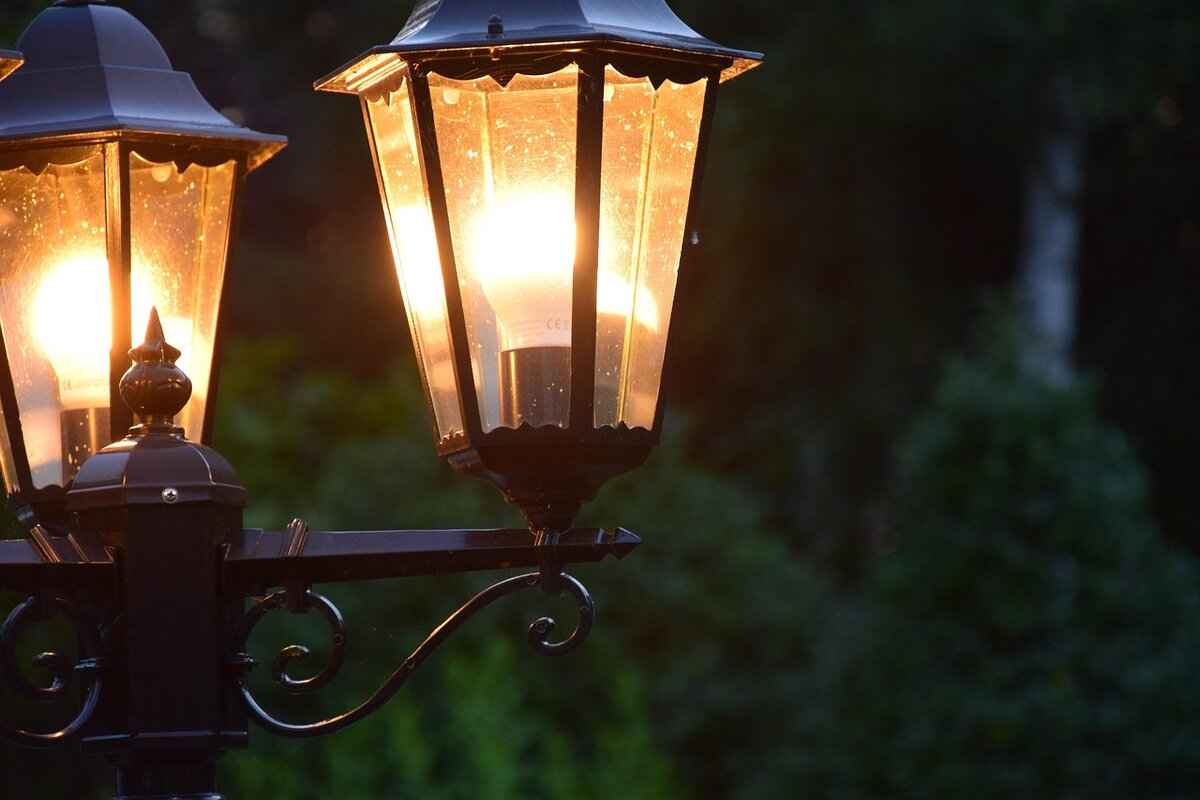This article will guide you through the process of changing the ignition coil on a 1992 Firebird, ensuring a smoother engine performance and enhanced reliability. The ignition coil plays a crucial role in the ignition system, and replacing it can significantly improve your vehicle’s performance.
Understanding the Ignition Coil’s Role
The ignition coil is a vital component of your vehicle’s ignition system. It converts the low voltage from the battery into the high voltage necessary to ignite the fuel-air mixture in the engine’s cylinders. This process is essential for the engine to start and run smoothly. If the ignition coil is malfunctioning, it can lead to issues such as engine misfires and reduced fuel efficiency.
Signs of a Failing Ignition Coil
Recognizing the symptoms of a failing ignition coil is crucial for preventing further damage to your engine. Common signs include:
- Engine Misfires: A noticeable loss of power and rough idling can occur.
- Poor Fuel Economy: An increase in fuel consumption may indicate ignition issues.
- Difficulty Starting: If your vehicle struggles to start, the ignition coil could be the culprit.
- Check Engine Light: This warning can illuminate if there are ignition problems.
Gathering the Necessary Tools
Before starting the replacement process, gather all the necessary tools to ensure a smooth operation. You will need:
- Socket set
- Screwdrivers
- Safety goggles
- Wrench set
- Replacement ignition coil
Safety Precautions Before Starting
Safety should always be a priority when working on your vehicle. Take the following precautions:
- Disconnect the battery to prevent electrical shocks.
- Wear safety goggles to protect your eyes from debris.
- Ensure the engine is cool before starting any work.
Locating the Ignition Coil in a 1992 Firebird
Identifying the ignition coil’s location is crucial for a successful replacement. In the 1992 Firebird, it is typically found near the engine block, making it accessible for removal. Refer to your vehicle’s manual for precise location details.
Removing the Old Ignition Coil
The process of removing the old ignition coil involves several steps:
- Disconnect the electrical connectors from the ignition coil.
- Unscrew the mounting bolts holding the coil in place.
- Carefully lift the old coil out of its position.
Preparing the New Ignition Coil for Installation
Before installing the new ignition coil, inspect it for any defects. Make sure the terminals are clean and free from corrosion. Proper preparation ensures a successful installation and optimal performance.
Installing the New Ignition Coil
Follow these steps to install the new ignition coil:
- Position the new coil in place and secure it with the mounting bolts.
- Reconnect the electrical connectors, ensuring a snug fit.
- Double-check all connections before proceeding.
Testing the New Ignition Coil
After installation, testing the new ignition coil is vital. Start the engine and listen for any irregularities in performance. If the engine runs smoothly without misfires, the installation was successful.
Common Mistakes to Avoid
Avoiding common pitfalls during the ignition coil replacement process can save you time and frustration. Here are frequent mistakes to steer clear of:
- Not disconnecting the battery.
- Failing to properly secure the new coil.
- Overlooking electrical connections.
Maintenance Tips for Longevity
To prolong the life of your new ignition coil, regular maintenance is essential. Periodic inspections and ensuring the electrical connections remain secure will help maintain optimal performance.
When to Seek Professional Help
While many can change the ignition coil themselves, some situations may require professional assistance. If you encounter persistent issues or are unsure about the process, it’s advisable to consult a mechanic to prevent further complications and ensure safety.

Understanding the Ignition Coil’s Role
The ignition coil serves a fundamental purpose in the operation of an internal combustion engine. Its primary function is to convert the low voltage from the vehicle’s battery, typically around 12 volts, into the high voltage required to create a spark capable of igniting the fuel-air mixture within the engine cylinders. This transformation is essential for engine operation, as without a proper spark, the engine will misfire or fail to start altogether.
The ignition coil operates on the principle of electromagnetic induction. When the ignition system is activated, current flows through the coil, creating a magnetic field. Once the current is interrupted by the ignition control module or distributor, the magnetic field collapses, inducing a high voltage in the coil’s secondary winding. This voltage can reach anywhere from 12,000 to 45,000 volts, depending on the design of the ignition system. The high voltage is then sent to the spark plugs, which deliver the electric spark necessary for combustion.
Understanding the ignition coil’s function is crucial for diagnosing various engine issues. For instance, if the ignition coil is malfunctioning, it can lead to symptoms such as engine misfires, rough idling, and reduced fuel efficiency. Recognizing these signs early can prevent more severe engine damage and costly repairs.
Additionally, the ignition coil is often subjected to significant heat and vibration, making it susceptible to wear and tear over time. Regular inspections can help identify potential problems before they escalate. If you notice any of the following symptoms, it may be time to check your ignition coil:
- Engine Misfires: A misfire can indicate that the ignition coil is not providing sufficient voltage to the spark plugs.
- Poor Fuel Economy: A failing ignition coil can lead to incomplete combustion, resulting in higher fuel consumption.
- Difficulty Starting: If the engine struggles to start or does not start at all, the ignition coil could be the culprit.
By understanding the role of the ignition coil, vehicle owners can better maintain their engines and address issues proactively. Regular checks and timely replacements can lead to enhanced engine performance and reliability, ensuring that your vehicle runs smoothly for years to come.

Signs of a Failing Ignition Coil
Recognizing the symptoms of a failing ignition coil is crucial for maintaining your vehicle’s engine health. The ignition coil plays a vital role in the ignition system by converting the battery’s low voltage to the high voltage needed to ignite the fuel-air mixture in the engine’s cylinders. When the ignition coil begins to fail, it can lead to a cascade of engine performance issues. Here are some common signs to watch for:
- Engine Misfires: One of the most noticeable symptoms of a failing ignition coil is engine misfires. This occurs when the coil does not provide enough voltage to ignite the fuel-air mixture, causing the engine to run unevenly. If you experience a rough idle or feel the engine shaking, it might be time to inspect the ignition coil.
- Poor Fuel Economy: A malfunctioning ignition coil can lead to incomplete combustion, which in turn results in decreased fuel efficiency. If you notice that you’re filling up your gas tank more frequently without any changes in driving habits, this could be a sign of ignition coil failure.
- Difficulty Starting the Vehicle: If your vehicle struggles to start or requires multiple attempts to crank the engine, it may indicate that the ignition coil is not functioning correctly. A weak or failing ignition coil can prevent the engine from starting altogether.
- Check Engine Light: Modern vehicles are equipped with onboard diagnostics that can detect when something is amiss. If your check engine light illuminates, it could be due to a failing ignition coil. A diagnostic scan can help pinpoint the exact issue.
- Unusual Engine Sounds: Listen for any unusual sounds coming from the engine, such as backfiring or popping noises. These sounds can indicate that the ignition system is not working properly, often due to a faulty ignition coil.
Recognizing these symptoms early can save you from more extensive and costly repairs down the line. If you notice any of these signs, it is advisable to consult a professional mechanic to diagnose the issue accurately. Ignoring these indicators can lead to further damage to your engine, potentially resulting in a complete breakdown.
In summary, the ignition coil is an essential component of your vehicle’s ignition system. By being aware of the signs of a failing ignition coil, you can take proactive steps to maintain your engine’s performance and reliability. Regular inspections and timely replacements can help ensure that your vehicle runs smoothly for years to come.

Gathering the Necessary Tools
Before embarking on the journey of replacing the ignition coil in your 1992 Firebird, it is crucial to prepare adequately. This preparation begins with gathering all the necessary tools to ensure a streamlined and efficient process. Having the right tools on hand not only saves time but also minimizes the risk of complications during the replacement.
- Socket Set: A comprehensive socket set is essential for loosening and tightening the bolts that secure the ignition coil. Ensure that you have both metric and standard sizes, as some bolts may vary.
- Screwdrivers: A selection of screwdrivers, including both flathead and Phillips, will be necessary to remove any screws that may be holding components in place. A magnetic screwdriver can be particularly helpful to avoid losing screws.
- Wrenches: In addition to sockets, a set of wrenches may be needed for specific bolts that require a different grip. Make sure to have various sizes to accommodate different fasteners.
- Safety Gear: Your safety is paramount. Equip yourself with safety goggles to protect your eyes from debris and gloves to safeguard your hands from sharp edges and electrical components. A dust mask can also be beneficial if you’re working in a dusty environment.
- Multimeter: A multimeter is a valuable tool for diagnosing electrical issues. It can help you check the voltage of the ignition coil and ensure that it is functioning correctly before and after installation.
- Flashlight: A reliable flashlight or work light will illuminate the engine bay, allowing you to see clearly while working in tight spaces.
Having these tools ready will empower you to tackle the ignition coil replacement with confidence. Additionally, consider laying out your tools in an organized manner, which can further streamline the process. Taking the time to prepare effectively can make the difference between a frustrating experience and a successful repair.
In summary, gathering the right tools is an essential first step in changing the ignition coil of your 1992 Firebird. By ensuring you have everything you need, including a socket set, screwdrivers, safety gear, and diagnostic tools, you are setting yourself up for a smooth and efficient replacement process. Remember, preparation is key to achieving the best results in any automotive repair task.

Safety Precautions Before Starting
When it comes to working on your vehicle, ensuring safety should be your top priority. The process of changing the ignition coil on a 1992 Firebird, or any vehicle for that matter, can involve various risks if proper precautions are not taken. Here are some essential safety measures to consider before you start the task.
- Disconnect the Battery: Always begin by disconnecting the battery. This step is crucial in preventing electrical shocks while you work on the ignition system. It also helps avoid any accidental short circuits that could damage the vehicle’s electrical components.
- Wear Protective Gear: Equip yourself with safety goggles and gloves. Safety goggles protect your eyes from debris and potential sparks, while gloves can shield your hands from sharp edges and electrical components.
- Work in a Well-Ventilated Area: Ensure that you are working in a space with good airflow. This is particularly important if you are working with chemicals or if the vehicle has been running, as exhaust fumes can be harmful.
- Keep a Fire Extinguisher Handy: Having a fire extinguisher nearby is a smart safety measure, especially when working with electrical components. In case of an emergency, you can act quickly to mitigate any fire risks.
- Organize Your Workspace: A cluttered workspace can lead to accidents. Keep your tools organized and ensure that the area is free of unnecessary items that could cause tripping or falling hazards.
- Read the Owner’s Manual: Familiarize yourself with the vehicle’s owner manual before starting. This document contains essential information about the ignition coil and specific instructions that pertain to your model.
By following these precautions, you can create a safer working environment and reduce the risk of accidents. Remember, taking the time to prepare adequately not only protects you but also ensures that your vehicle maintenance is performed effectively and efficiently.
In summary, safety should never be overlooked when working on your vehicle. By disconnecting the battery, wearing appropriate safety gear, ensuring proper ventilation, and keeping your workspace organized, you can significantly reduce the chances of accidents. Always prioritize your safety first, and your vehicle maintenance tasks will be more successful.

Locating the Ignition Coil in a 1992 Firebird
Identifying the ignition coil’s location is crucial for a successful replacement. In the 1992 Firebird, the ignition coil is typically found near the engine block, making it accessible for removal. Understanding its exact placement can save time and effort during the replacement process.
- Engine Block Proximity: The ignition coil is mounted near the engine block, often on the driver’s side. This location allows for efficient access to the electrical connectors and mounting bolts.
- Visual Identification: The ignition coil is a cylindrical component, usually black or dark-colored, with several wires connected to it. Familiarizing yourself with its appearance can help in quickly locating it.
- Consulting the Manual: If you have difficulty locating the ignition coil, refer to the vehicle’s service manual. This document contains diagrams and detailed information specific to the 1992 Firebird.
When preparing to locate the ignition coil, ensure the vehicle is parked on a flat surface and the engine is cool. This precaution is vital for your safety and to avoid any potential burns. Additionally, disconnecting the battery is highly recommended to prevent electrical shocks during the process.
To facilitate the search, follow these steps:
- Open the Hood: Start by opening the hood of your Firebird and securing it with the prop rod.
- Locate the Engine Block: Familiarize yourself with the engine layout. The ignition coil is typically positioned close to the top of the engine block.
- Identify the Coil: Look for a component that resembles a small cylinder with multiple wires leading into it. This is your ignition coil.
In some cases, the ignition coil may be covered by other components or wiring harnesses. If this is the case, gently move any obstructing wires or components aside, taking care not to damage them.
Once located, inspect the ignition coil for any signs of wear or damage, such as cracks or corrosion. If you notice any issues, it may be time to replace the coil to ensure optimal engine performance.
In summary, locating the ignition coil in a 1992 Firebird is a straightforward process when you know where to look. By following the guidelines outlined above, you can efficiently identify the ignition coil’s position, making the replacement process smoother and more effective.

Removing the Old Ignition Coil
Removing the old ignition coil from your 1992 Firebird is a critical step in ensuring optimal engine performance. This process may seem daunting, but with the right guidance, you can execute it smoothly and efficiently. Below, we outline the necessary steps involved in this procedure, ensuring that you can replace your ignition coil with confidence.
- Step 1: Prepare Your Workspace
Before diving into the removal process, it is essential to prepare your workspace. Make sure you have adequate lighting and a clean area to work. Gather all necessary tools, including a socket set, screwdrivers, and a pair of pliers. Wearing safety goggles and gloves is also advisable to protect yourself from any potential hazards.
- Step 2: Disconnect the Battery
Safety is paramount when working on your vehicle. Start by disconnecting the negative terminal of the battery. This step prevents any electrical shorts or shocks while you are handling the ignition coil.
- Step 3: Locate the Ignition Coil
The ignition coil in a 1992 Firebird is typically located near the engine block, making it relatively easy to access. However, be sure to check your vehicle’s manual if you have trouble locating it.
- Step 4: Disconnect the Wiring Harness
Carefully disconnect the wiring harness from the ignition coil. This usually involves pressing a tab and pulling the connector away. Be gentle to avoid damaging the wires or connectors.
- Step 5: Unscrew the Ignition Coil
Once the wires are disconnected, you can proceed to remove the ignition coil from its mounting. Use a socket wrench to unscrew the bolts securing the coil in place. Keep these bolts in a safe location, as you will need them to install the new coil.
- Step 6: Remove the Old Coil
After unscrewing, gently pull the old ignition coil out of its housing. Inspect the coil for any signs of wear or damage, which can give you insight into potential issues that may have affected your engine’s performance.
- Step 7: Clean the Area
Before installing the new ignition coil, take a moment to clean the mounting area. Removing any debris or corrosion will ensure a secure fit for the new coil.
In summary, removing the old ignition coil involves several straightforward steps. By following these instructions carefully, you can successfully prepare your vehicle for the installation of a new ignition coil, enhancing your Firebird’s performance and reliability. Remember, patience and attention to detail are key in this process.

Preparing the New Ignition Coil for Installation
Before you proceed with the installation of your new ignition coil, it is crucial to undertake a thorough inspection to ensure that the component is free from defects. This preparatory step is not just a formality; it is essential for achieving optimal performance and longevity of the ignition system.
- Visual Inspection: Start by examining the ignition coil for any visible signs of damage, such as cracks, corrosion, or burnt connectors. These issues can severely affect the coil’s performance and should be addressed before installation.
- Check for Compatibility: Ensure that the ignition coil you have purchased is compatible with your 1992 Firebird. Cross-reference part numbers and specifications to avoid any mismatches.
- Verify Electrical Connections: Inspect the electrical terminals of the ignition coil. They should be clean and free from debris. Corroded or dirty terminals can lead to poor electrical contact, resulting in ignition failure.
- Test the Coil: If possible, use a multimeter to test the resistance of the ignition coil. This can help identify any internal faults that may not be visible during a visual inspection. A reading outside the manufacturer’s specifications may indicate a defective coil.
Once you have completed the inspection and confirmed that the ignition coil is in good condition, it is important to prepare the installation area. Clear any debris or obstructions around the ignition coil’s mounting location to facilitate a smooth installation process.
Additionally, lay out all necessary tools and components within easy reach. You will typically need a socket set, screwdrivers, and possibly some dielectric grease for the electrical connections. Having everything organized will streamline the installation process and reduce the risk of losing small parts.
When you are ready to install the new ignition coil, follow the manufacturer’s instructions carefully. This may include specific torque specifications for mounting bolts and guidelines for reconnecting electrical wires.
Remember, proper preparation is key to ensuring a successful installation. Taking the time to inspect and prepare your new ignition coil can save you from potential issues down the road, such as engine misfires or poor fuel efficiency. By following these steps, you can enhance the reliability of your ignition system and enjoy a smoother driving experience.

Installing the New Ignition Coil
Installing the new ignition coil is a critical step in ensuring your vehicle runs smoothly. This process requires careful attention to detail to avoid any mishaps that could lead to engine performance issues. Below, we will outline a comprehensive step-by-step guide to help you successfully install the ignition coil on your 1992 Firebird.
- Step 1: Gather Your Tools
Before you begin, ensure you have all the necessary tools at hand. You will need a socket set, screwdrivers, and possibly a torque wrench. Having these items ready will streamline the installation process.
- Step 2: Prepare the Area
Make sure to work in a well-lit area and have a clean workspace. This will help you keep track of small parts and ensure you can see what you’re doing clearly.
- Step 3: Disconnect the Battery
For safety, disconnect the negative terminal of the battery. This step is crucial to prevent any electrical shocks while working on the ignition coil. Always wear safety goggles to protect your eyes from debris.
- Step 4: Position the New Ignition Coil
Carefully position the new ignition coil in the correct location. Ensure that it aligns with the mounting holes. It’s important to handle the coil gently to avoid damaging any internal components.
- Step 5: Secure the Ignition Coil
Using the appropriate screws or bolts, secure the ignition coil to its mounting bracket. Make sure to tighten them evenly to avoid any stress on the coil. If your vehicle’s manual specifies a torque setting, use a torque wrench to achieve the correct tightness.
- Step 6: Reconnect the Wires
Reconnect the necessary wires to the ignition coil. Ensure that each connection is firm and secure. It’s advisable to refer to your vehicle’s wiring diagram to confirm that you are connecting the wires correctly.
- Step 7: Reconnect the Battery
Once everything is securely in place, reconnect the negative terminal of the battery. This step is vital before starting the engine.
- Step 8: Test the Installation
Start your engine and listen for any irregularities. If the engine runs smoothly without any warning lights on the dashboard, your installation was successful.
In conclusion, installing a new ignition coil may seem daunting, but by following these detailed steps, you can ensure a successful replacement. Always remember to take your time and double-check each connection to maintain the reliability of your vehicle’s ignition system. Proper installation not only enhances performance but also prolongs the life of your ignition coil.

Testing the New Ignition Coil
After successfully installing the new ignition coil in your 1992 Firebird, it is essential to conduct a thorough test to ensure it operates as expected. This crucial step not only verifies the coil’s functionality but also helps identify any potential issues that may affect engine performance. Below is a detailed guide on how to effectively test the new ignition coil.
- Start the Engine: Begin by turning the ignition key to start the engine. Listen carefully for any unusual sounds, such as knocking or sputtering, which may indicate a problem with the ignition system.
- Monitor Engine Performance: Once the engine is running, pay close attention to its performance. A properly functioning ignition coil should provide a smooth idle and consistent acceleration. If you notice any misfires or stalling, it may suggest that the coil is not working correctly.
- Check for Error Codes: Using an OBD-II scanner can help you identify any error codes related to the ignition system. If the scanner shows codes related to misfires or ignition failure, further investigation may be necessary.
- Inspect the Spark Plugs: Remove the spark plugs and examine them for signs of wear or damage. A new ignition coil should produce a strong spark, and any discoloration or fouling on the spark plugs can indicate issues with the coil or other components of the ignition system.
- Perform a Voltage Test: Using a multimeter, you can measure the voltage output from the ignition coil. The voltage should meet the manufacturer’s specifications. If the output is low, it may indicate a faulty coil.
It is important to remember that while testing the ignition coil, you should also check the related components, including the ignition wires and the distributor. A failure in one component can affect the entire ignition system, leading to poor engine performance.
In addition to these tests, consider conducting a road test. Drive the vehicle under various conditions—accelerating, decelerating, and idling—to assess the overall performance of the ignition system. This step can help ensure that the new ignition coil is not only functioning correctly but also contributing to optimal engine performance.
By following these steps, you can confidently determine whether the new ignition coil is functioning as intended. Regular testing and maintenance of the ignition system are essential for the longevity and reliability of your vehicle. If you encounter persistent issues, it may be wise to consult with a professional mechanic for further diagnosis.

Common Mistakes to Avoid
When undertaking the task of replacing the ignition coil in your 1992 Firebird, it is essential to recognize that common mistakes can lead to unnecessary complications and setbacks. By understanding these pitfalls, you can ensure a smoother process and maintain your vehicle’s performance. Below, we outline frequent errors and provide practical tips on how to avoid them.
One of the most critical steps before beginning any electrical work on your vehicle is to disconnect the battery. Neglecting this step can lead to electrical shocks or short circuits. Always ensure that the negative terminal is removed to prevent any accidental sparks.
Using incorrect or inadequate tools can make the replacement process more challenging. Ensure you have a complete socket set, screwdrivers, and any specific tools required for your Firebird model. Investing in the right tools will save you time and frustration.
Safety should always be your top priority. Wearing safety goggles and gloves can protect you from debris and potential injuries. Additionally, working in a well-ventilated area reduces the risk of inhaling harmful fumes.
Before installation, always inspect the new ignition coil for any visible defects. Check for cracks or damage that could hinder performance. Installing a faulty part can lead to further issues down the line.
When reconnecting wires to the new ignition coil, ensure you follow the correct order and orientation. Misconnecting wires can lead to engine misfires or failure to start. Take a moment to refer to your vehicle’s manual for guidance.
After installation, it is crucial to run a test on the new ignition coil. Starting the engine and monitoring its performance can help identify any immediate issues. Ignoring this step may result in overlooking potential problems that could require further repairs.
An organized workspace can significantly enhance your efficiency. Keep your tools and parts in designated areas to avoid losing small components. Clutter can lead to mistakes and increase the time needed to complete the task.
Finally, one of the biggest mistakes is rushing through the replacement process. Take your time to ensure each step is completed accurately. Haste can lead to errors that may result in costly repairs later on.
By being aware of these common mistakes and taking proactive measures to avoid them, you can successfully replace the ignition coil in your 1992 Firebird. This not only enhances your vehicle’s performance but also provides peace of mind knowing that the job has been done correctly.

Maintenance Tips for Longevity
To ensure the longevity of your new ignition coil, it is imperative to adopt a proactive approach to maintenance. Regular upkeep not only enhances the performance of your ignition coil but also contributes to the overall efficiency of your vehicle. Here are some essential maintenance tips to consider:
- Regular Inspections: Schedule periodic inspections of your ignition coil. Look for signs of wear, such as cracks or corrosion, which can indicate impending failure. A visual check can often reveal issues before they escalate.
- Secure Electrical Connections: Ensure that all electrical connections are tight and free from corrosion. Loose or corroded connections can lead to inconsistent performance and potentially damage the ignition coil.
- Check for Overheating: Overheating can significantly shorten the lifespan of your ignition coil. Monitor your engine temperature and address any overheating issues promptly to avoid damage.
- Replace Worn Spark Plugs: Worn or faulty spark plugs can put extra strain on the ignition coil. Regularly check and replace spark plugs as needed to maintain optimal performance.
- Avoid Excessive Vibration: Excessive vibration from the engine can damage the ignition coil over time. Ensure that engine mounts are in good condition and consider using vibration dampeners if necessary.
- Use Quality Parts: When replacing your ignition coil or any related components, always opt for high-quality parts. Inferior components can lead to premature failure and costly repairs.
- Monitor Fuel Quality: Poor fuel quality can affect engine performance and increase the workload on the ignition coil. Use high-quality fuel and consider using fuel additives to maintain engine health.
- Keep the Engine Clean: A clean engine is less likely to have issues that affect the ignition coil. Regularly clean the engine bay to prevent dirt and grime buildup that can lead to electrical problems.
In addition to these maintenance tips, it’s beneficial to keep a log of your vehicle’s maintenance history. This can help you track when inspections and replacements are due, ensuring you stay ahead of potential issues.
By following these guidelines, you can significantly extend the life of your ignition coil, ensuring your vehicle runs smoothly and efficiently. Remember, a well-maintained ignition system is crucial for optimal engine performance and fuel efficiency. Taking the time to perform regular checks and maintenance can save you from more extensive repairs down the line, ultimately providing peace of mind and reliability on the road.

When to Seek Professional Help
While many car enthusiasts may feel confident in their ability to change the ignition coil themselves, there are specific situations where seeking professional assistance is not just advisable, but essential. Understanding these scenarios can save you from potential complications and ensure your safety throughout the process.
- Complex Electrical Issues: If you encounter electrical problems beyond just the ignition coil, such as damaged wiring or issues with the vehicle’s computer system, it’s best to consult a professional. These problems can be intricate and may require specialized diagnostic tools and expertise.
- Persistent Engine Problems: If you’ve replaced the ignition coil and are still experiencing issues such as misfires or poor engine performance, it indicates that the problem may lie elsewhere. A professional mechanic can conduct a thorough diagnostic to identify underlying issues that a simple coil replacement won’t fix.
- Lack of Experience: If you’re unfamiliar with automotive repairs or lack the necessary tools, attempting to change the ignition coil on your own can lead to mistakes. Professionals have the training and experience to handle the job efficiently and safely, reducing the risk of further damage to your vehicle.
- Time Constraints: Sometimes, the urgency of getting your vehicle back on the road may not allow for a DIY approach. In such cases, a professional can complete the job more quickly, allowing you to focus on your daily responsibilities without the added stress of car troubles.
- Safety Concerns: Working with a vehicle’s electrical system poses risks, including electric shock or fire hazards. If you’re unsure about safety protocols or feel uncomfortable, it’s wise to leave the job to a qualified technician.
In addition to these factors, consider the warranty on your vehicle. If your car is still under warranty, performing the ignition coil replacement yourself may void it. Consulting with a professional ensures that the work is done correctly and maintains your warranty coverage.
When seeking professional help, it’s important to choose a reputable mechanic or service center. Look for certifications, customer reviews, and recommendations from trusted sources. A knowledgeable technician will not only replace the ignition coil but can also provide insights into your vehicle’s overall health and maintenance needs.
In summary, while changing the ignition coil can be a manageable task for many, certain situations necessitate professional intervention. Recognizing when to seek help can protect your vehicle and provide peace of mind, allowing you to drive safely and confidently.
Frequently Asked Questions
- What are the symptoms of a failing ignition coil?
Common symptoms include engine misfires, poor fuel economy, and difficulty starting your vehicle. If you notice any of these issues, it might be time to check your ignition coil.
- How do I know if I need to replace my ignition coil?
If your engine is running rough, you experience frequent stalling, or your check engine light is on, these could be signs that your ignition coil is failing and needs replacement.
- Can I replace the ignition coil myself?
Absolutely! With the right tools and safety precautions, many DIY enthusiasts can replace the ignition coil themselves. Just follow the detailed steps provided in the guide.
- What tools do I need to change the ignition coil?
You will need a socket set, screwdrivers, and safety gear like goggles. Having everything ready before you start will make the process smoother.
- How can I test the new ignition coil after installation?
After installing the new coil, simply start the engine and listen for smooth operation. If it runs without any irregularities, you’ve done a great job!
































































